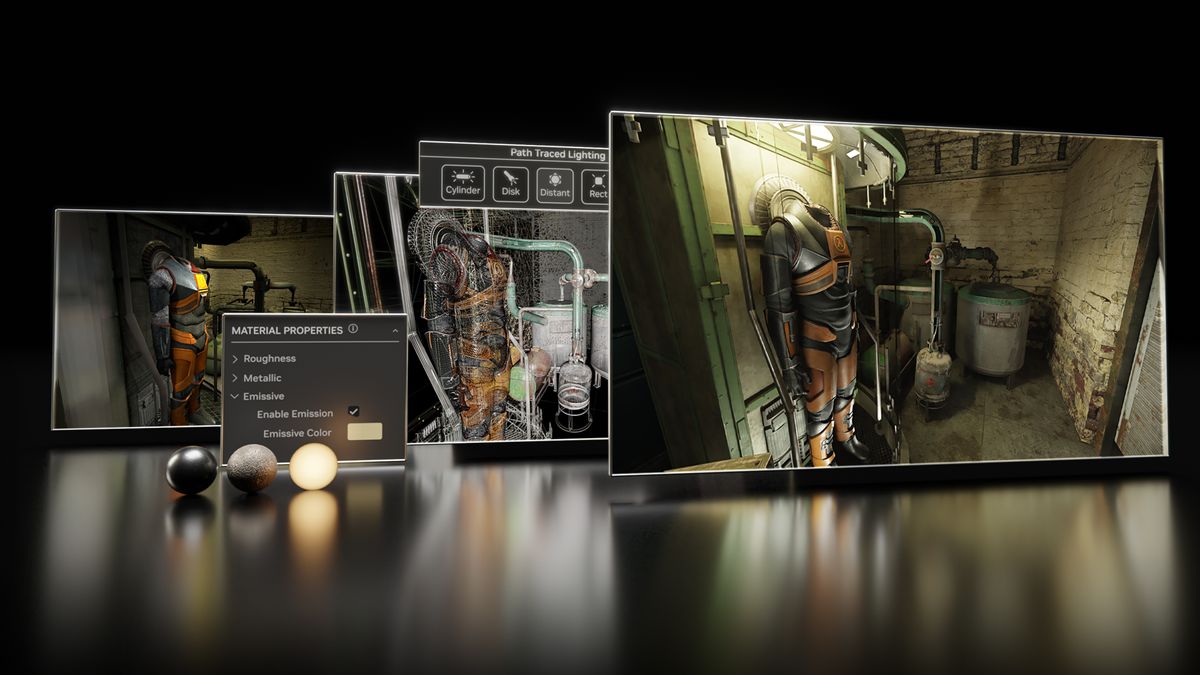Back in 2022, Nvidia unveiled its massive resource platform for the PC modding community, called Nvidia RTX Remix. Now the tech giant has launched it for open beta, giving modders a massive toolkit that includes full ray tracing, Nvidia DLSS, Nvidia Reflex, modern physically-based rendering (PBR) assets, and generative AI texture tools.
Nvidia RTX Remix is built on its self-titled Nvidia Omniverse, an end-to-end platform for remastering DirectX 8 and 9 games with a fixed function pipeline. Modders can remaster a growing list of older PC games by using several tools in the Remix platform that allow for capturing game assets and then enhancing them with AI tools, as well as using ray tracing and DLSS to further enhance and update those graphics.
According to Nvidia, Remix is made of two components: an application that creates lights and adds remastered assets into a game scene, and a runtime for capturing game scenes and injecting the remastered assets back into the game at playback. Nvidia has demonstrated the power of its platform already with its Portal with RTX remaster, while the modding community created Portal: Prelude RTX and The Elder Scrolls III: Morrowind remaster. Orbifold Studios is also working on the Half-Life 2 RTX: An RTX Remix Project, a community-led remaster.
This platform could be a double-edged sword
It’s fair to ask, though, if applying this powerful platform is always a good thing. For titles like Morrowind, which frankly looks awful, the Nvidia RTX Remix toolset does an incredible job of remastering the classic PC title. Even Half-Life 2 could benefit from a visual face-lift if done well to preserve the atmosphere of the original game.
And that brings me to the following issue: for titles like Portal, getting the RTX Remix treatment would be detrimental to the game. As previously pointed out, Portal 2 already looks stunning thanks to excellent art direction and smart design. To simply slap on more graphical updates without considering how they’re applied and whether the game even needs it is a waste of time at best and actively detrimental at worst.
You could even argue that this tech could negatively impact the older titles that would benefit the most from these improvements. Older games often made the most of graphical limitations to create iconic atmospheres and if new technology is applied without a sense of how to best recreate the original atmosphere, then you might end up with a remastered title that looks impressive but also doesn’t resemble the original work.
I’m curious to see how well the modding community will continue to utilize this technology. We’ve already seen genuinely great efforts like recreating Morrowind in Skyrim’s graphical engine or Fallout: London. While I’ll side-eye corporate efforts like the Portal 2 remaster, I’ll remain hopeful for fan-led projects created by people with a thorough understanding of what makes classic games so good in the first place.





